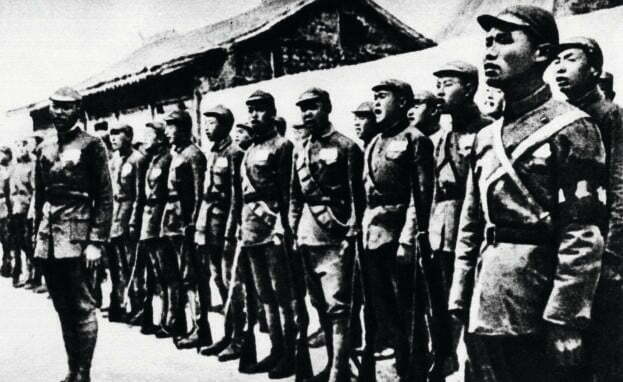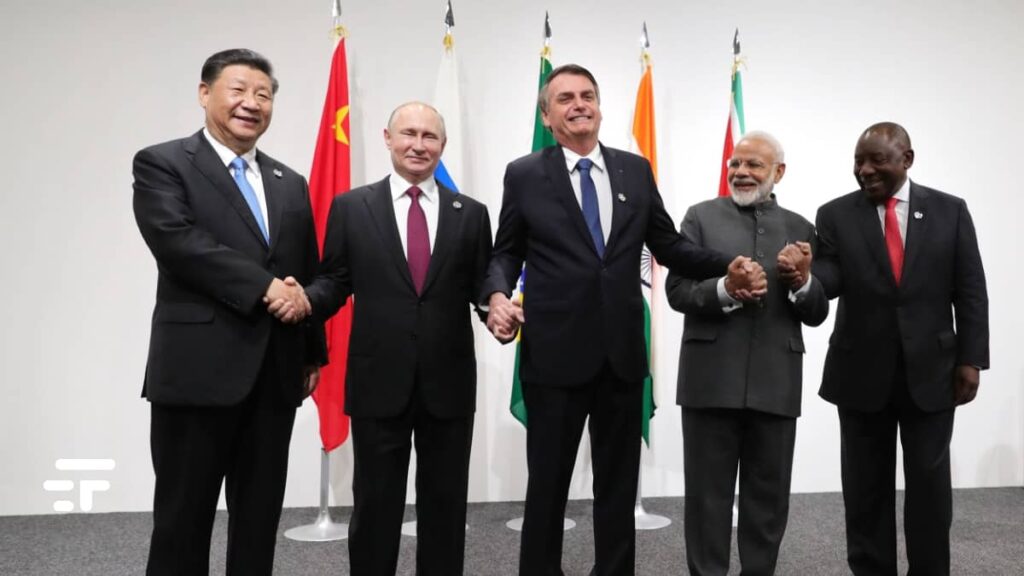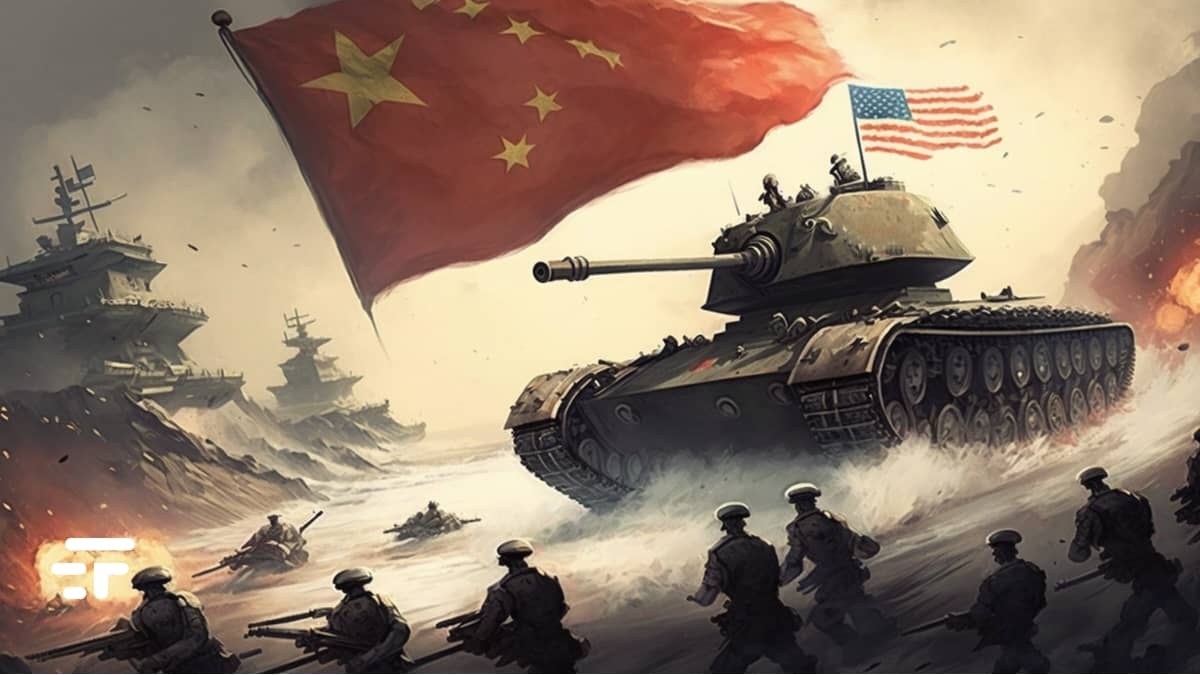It is no surprise by now that China and the United States do not agree on several aspects and have started a a new cold war: but thinking that they are about to unleash a "hot" one is shocking. Especially if you think about the consequences. This is why analysts all over the planet are trying to understand what will happen: whether we are approaching a conflict, and with what outcomes.
A long story of (un)love
The complex relationship between the two superpowers goes back a long way. Take today's major "node": Taiwan. During the times of Chinese communist leader Mao Zedong, 1927, when the nationalist government of Chiang Kai-shek fled mainland China and established his troops in Taiwan.
Well: even then, the US supported Chiang's exiled republic in Taiwan, worsening their relations with China.

Not even time to think about it, and here is the Korean War, 1950. The UN and China sided with the invaded South and the invading North respectively. Four million deaths later, an agreement between the two sides ended that phase of the war, and strengthened the hostility.
The conflict Sino-Soviet? Tiananmen Square Facts? The crisis of 1996, even culminating in nuclear threats? Practically an entire century of glowering glances: and never like today, the feeling that it could go wrong.
Today Taiwan, Ukraine and the South China Sea
As mentioned, the reasons for conflict have added up over the years, never subtracted. Globalization has only transferred the rivalry from the military to the economic level. Momentarily. Today, however, globalization not doing very well.
In any case, the historical tensions over Taiwan add to those over the conflict Ukrainian (with US suspicions about a Chinese role in supplying weapons to Russia). And most of all, at the moment, the dispute over the South China Sea: to put it briefly, China considers it its own, for the USA they are international waters. It could be the new step, the "spillover" that brings the conflict back to the military level.

The conflict over tariffs
In 2018, the Trump administration imposed severe US taxes on imports and exports to China. The president accused China of practicing an economic exchange model that was too aggressive, causing trade deficits in the country.
The first "economic conflict" of the new millennium between the two superpowers was born 5 years ago. Since then, more and more sparks: China has been blocked from accessing US high-tech products. We have seen mutual reductions in investments, arrests of company leaders, threats of bans on platforms like Tiktok.
Trump's fault? No sir. The new occupant of the White House, Joe Biden, has followed exactly the same course, despite the fact that it also creates problems for companies in his country.
I fly over altogether on Covid, which deserves a separate article, and one day in the history books it could rightfully be considered as perhaps a crucial stage on the path to a conflict.
A few weeks ago, the redde rationem continued with accusations of espionage through "spy balls" (which later proved to be completely unfounded).
What will the next step be?

The chessboard: world order versus multipolarity
How do the USA and China fit into the current context? What are their "study" moves, how are they perceived by other nations, possible parties to a future conflict?
For 21 out of 34 countries polled in a survey, the US holds the economic dominance: for other 13 countries, the scepter belongs to China.
In terms of GDP, that of the USA represents 24% of the global one; the Chinese one 15%. In terms of communication, computers, intelligence and surveillance, the two countries are now equivalent. The feeling, however, is that in the East they have long since placed the arrow to move forward.
Overtaking
What really makes the difference at the moment is the different strategy between the two countries. A strategy which, in the absence of a conflict on a global scale, favors a clear difference in pace of China, which would undoubtedly surpass the USA.
While the USA, in fact, "managed" a first quarter of a century through a “endless” war to terror (not always victorious, see Afghanistan), China has pushed a lot internally. With a medium-term strategy in three phases, and one goal: to overtake the USA as a leading economic power.

In the first phase, China aims to become independent from US investment and technology. Internal growth and "virtual" self-sufficiency, to catalyze around itself and attract more and more countries into its sphere.
Many people doubt, however, that the USA will calmly wait for time and inertia to allow China to dethrone them: for this reason the emphasis risks shifting more and more to the possibility of a conflict which, at the moment, would give the USA and the Western component in its support. But is this really how it should go?
The figures of a conflict: the USA
Between the two (we also see it in NATO's commitment to Ukraine) those who have more interest in flexing their muscles are the United States. It's their strong point, and they have always exploited it.
Despite domestic public opinion, the US military is always prepared for war. It has been fighting practically forever, and no country in the world invests such exorbitant sums in armaments.
Modern techniques, advanced warships, submarines – the US boasts much better capabilities in both offense and defense. Also in terms of "alliances and subjugations", the United States has established many ties with the countries of the Asian area (including Japan, Australia, South Korea and many others), starting over the decades a slow "encirclement" maneuver which remember others.
Here too, however, we need to be careful about inertia.
The figures of a conflict: China
China is also expanding its influence beyond its borders. It did it with the ambitious Belt and Road plan for a new "Silk Road", it is doing it today within the so-called BRICS and with other agreements (Iran, Pakistan, other Asian and African countries).
Looking at everything from a fair distance, it seems that the two superpowers are working to gain consensus and attention.

Militarily speaking, China has not abandoned the production and development of weapons. However, the economic strategy has retained a robust military "rib", which always keeps the doors open to the possibility of a conflict, which however China today would face with extreme reluctance.
And tomorrow? The increase in weapons (nuclear and otherwise), in new ships "drone carrier” and surveillance technologies, including from space, shows that Beijing knows it needs to keep its attention high.
In conclusion
China does not appear ready for a conflict with the US or globally, and would probably succumb. For this it needs to acquire more strength, relying on geological advantages (raw materials, demographic and productive capacity).
Maybe we will arrive at a multipolar world peacefully, the USA will agree to reduce their role which has become hypertrophied after the fall of the USSR, but it is not easy to predict.
If this were not the case, the USA know that time is on China's side: for this reason they could be in a hurry to turn up the volume of the confrontation, and to corner the Celestial Empire while they can.
We'll see, indeed: we hope not to see.


